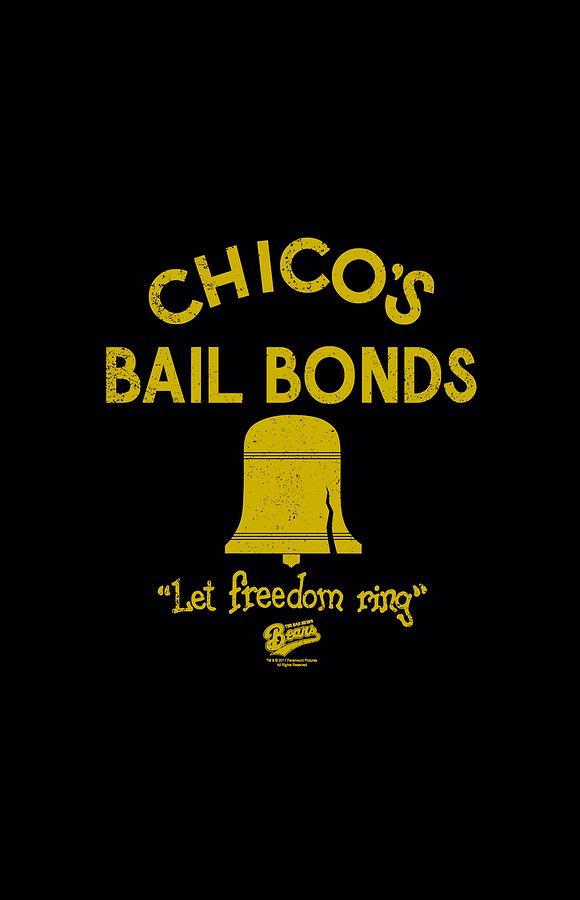How Newark Bail Bonds Can Help You or Your Loved One Get Released Fast
How Newark Bail Bonds Can Help You or Your Loved One Get Released Fast
Blog Article
Simplifying the Bail Process: Your Guide to Bail Bonds
Browsing the bail procedure can frequently really feel frustrating, especially for those unfamiliar with the numerous types of bond bonds and the actions included in safeguarding release. As soon as apprehended, the subsequent bond hearing will establish the monetary commitments necessary for release.
Recognizing Bond Basics
While the lawful system can often show up difficult, recognizing the fundamentals of bond is important for browsing the complexities of pretrial release. Bail works as a financial assurance that an accused will appear in court for their set up hearings. When an individual is arrested, a judge establishes the bond quantity based on several aspects, consisting of the nature of the criminal activity, the defendant's criminal history, and the danger of trip.
Bail can take numerous kinds, including money bond, where the accused pays the complete quantity upfront, or surety bonds, where a bail bondsman ensures the bail for a charge. If the accused stops working to show up in court, they waive the bail quantity, which can result in added lawful consequences.
In many cases, individuals may be released by themselves recognizance, suggesting they do not require to pay bond however should guarantee to return for their court dates. Comprehending these fundamental principles is critical for offenders and their households as they browse the bail procedure, making certain educated choices are made during a tough time.
Just How Bond Bonds Work
Understanding just how bail bonds job is critical for any individual associated with the bail process. A bail bond is a legitimately binding contract between a bond bondsman, the accused, and the court. When a defendant is apprehended, a court establishes a bond amount intended to ensure the person's appearance at future court hearings. If the offender can not manage to pay the complete bail quantity, they can seek the solutions of a bail bondsman.
The bondsman normally charges a non-refundable cost, usually around 10-15% of the complete bond amount. This cost represents the bondsman's settlement for presuming the monetary threat associated with the bond. As soon as the fee is paid, the bail bondsman messages the complete bond total up to the court, protecting the offender's launch from safekeeping.
For this service, the bondsman may need security, such as residential property or assets, to reduce prospective losses if the defendant falls short to appear in court. If the defendant does not go to the arranged hearings, the bail bondsman has the right to recoup the bail amount via legal methods, which might include hiring a bounty seeker. Recognizing this process can aid people navigate the complexities of securing a bail bond properly.
Sorts Of Bail Bonds
After protecting a bail bond, it is essential to identify that not all bail bonds coincide; they are available in different types created to fit various situations and needs. The most common kind is the surety bond, which involves a bond bondsman that assures the complete bond total up to the court in exchange for a charge, normally around 10% of the complete bail. This is excellent for those who can not afford to pay the complete bond quantity what is a jail bond upfront.
One more type is the cash money bond, where the defendant or their representative pays the full bail quantity in money straight to the court. When individuals have the monetary methods and favor to recoup their funds upon court look., this option is typically made use of.
Residential or commercial property bonds enable individuals to make use of actual estate as collateral for bail. bail bond company newark ohio. This needs a residential or commercial property evaluation and can be complicated, however it is beneficial for those that possess important properties
Last but not least, some territories supply individual recognizance bonds, where the offender is released based on a guarantee to appear in court with no financial commitment. Understanding these sorts of bail bonds is essential for making notified choices in your situation.
The Bail Process Actions
Browsing the bond process includes a number of vital steps that can considerably affect the result of an offender's situation. The process generally begins with the apprehension, throughout which the person is apprehended. Once detained, the accused will be educated of the charges and may have a bond hearing arranged, where a court will determine the bail quantity based upon the seriousness of the criminal offense, flight danger, and criminal history.
After the bond quantity is established, the accused or their representative can speak to a bondsman. The bond bondsman will assess the scenario, explaining the terms of the bond and the costs entailed, which generally total up to a percentage of the complete bond. If an agreement is gotten to, the bail bondsman will certainly upload the bail with the court, enabling the offender to be released from guardianship.

Tips for Choosing a Bond Representative
Picking a bond representative is a critical action that can substantially affect the bond procedure. It is crucial to pick a representative who not only understands the legal complexities yet additionally supplies trustworthy assistance throughout this difficult time. Begin by researching licensed bond agents in your location; guarantee they have the required credentials and experience in managing your certain circumstance.
Inspect reviews and testimonials from previous customers to evaluate the representative's online reputation. A reputable bond agent need to display professionalism and reliability, transparency, and compassion. Don't think twice to ask useful reference questions regarding their fees, procedures, and any kind of potential security demands. Recognizing the monetary responsibilities in advance can help avoid unexpected expenses later on.
In addition, consider the availability and responsiveness of the bail agent. A great representative should come 24/7, prepared to supply aid whenever essential. Evaluate their interaction style; an agent who listens and discusses plainly can make the procedure extra convenient.

Conclusion
In conclusion, browsing the bond process requires a clear understanding of the numerous types of bail bonds and the step-by-step steps entailed. By acquainting oneself with cash bonds, guaranty bonds, and personal recognizance releases, people can make enlightened decisions. Engaging with a qualified bail bondsman is crucial for assisting in release while making certain compliance with court obligations. Eventually, an extensive grip of these components enhances the bail experience and improves the likelihood of an effective outcome.
Browsing the bond process can frequently really feel overwhelming, especially for those strange with the numerous types of bond bonds and the actions involved in protecting launch.Understanding just how bail bonds work is vital for anyone included in the bond process. A bail bond is a legitimately binding arrangement between a bail bondsman, the accused, and the court.After safeguarding a bail bond, it is crucial to acknowledge that not all bond bonds are the same; they come in different kinds made to match various situations and needs. The most typical kind is the guaranty bond, which entails a bail bondsman that assures the complete bond quantity to the court in exchange for a fee, generally around 10% of the complete bond.
Report this page